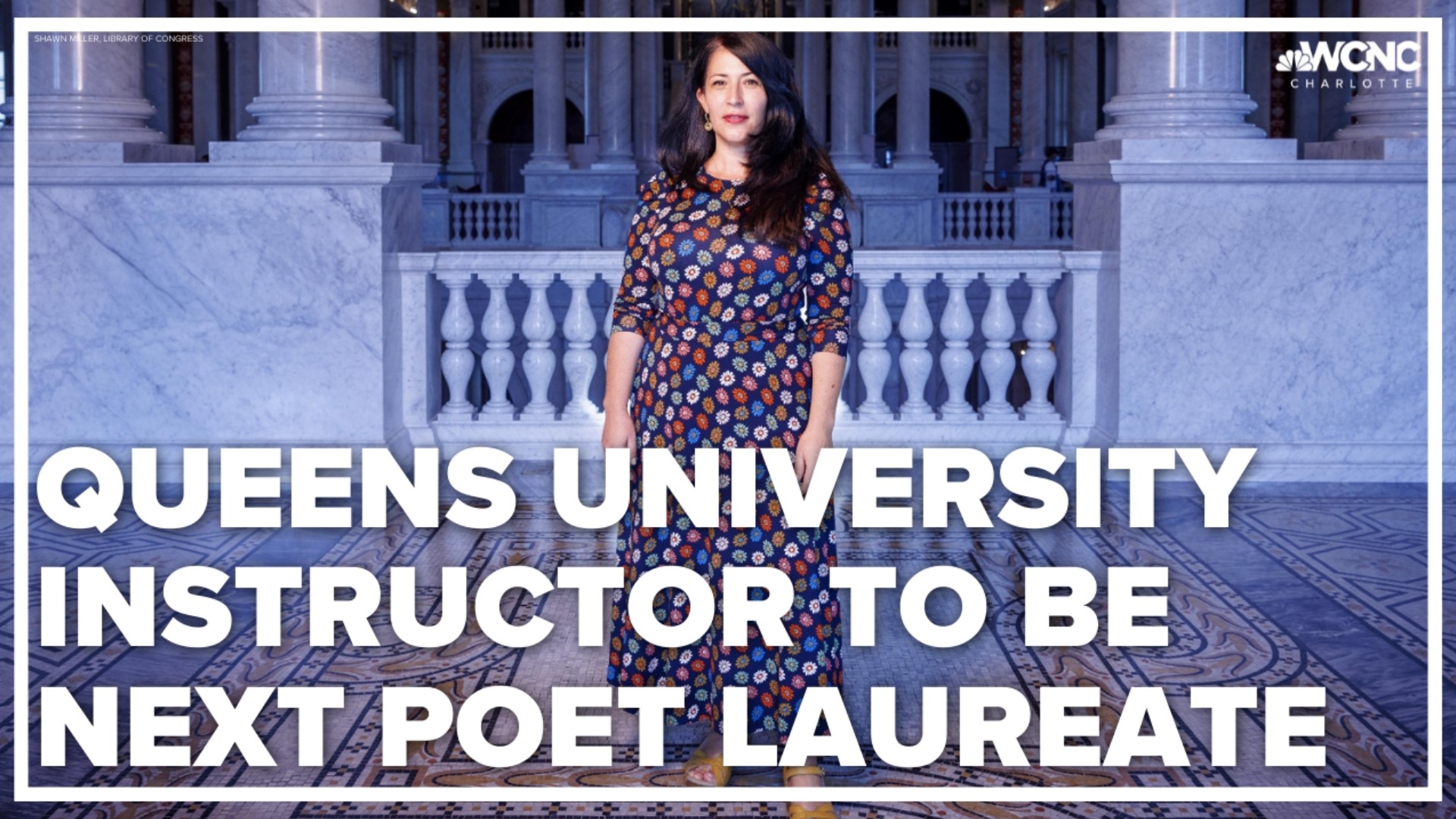CHARLOTTE, N.C. — Ada Limón said she had to remind herself that, yes, she was really being told that she was the next U.S. Poet Laureate when she got the call.
"I can tell you that I had a full-on, out-of-body experience," she recalled. "It seemed like it was happening to someone else."
But it really was happening for her. Carla Hayden, the Librarian of Congress, confirmed to Limón that she would indeed serve a term in the distinguished role. It's an honor that has been bestowed to 23 poets since the position's creation in 1937, with Limón now assuming the title as the nation's 24th Poet Laureate.
But what exactly does the Poet Laureate do? And how did the creative writing professor at Queens University come about being honored with this recognition?
Hayden at the Library of Congress said Limón was selected by others just like her.
"The Library of Congress has a group of experts, poets themselves, all types of people that really know about the field of poetry, but also know about what poetry can do," she said. "Limón was the number one choice for the position."
Hayden went on to cite Limón's body of work which draws on her own life experiences that can help readers connect with one another, lauding her work as something just about anyone could understand.
"[Limón's] work is so accessible, it makes you think that you could possibly write a poem, that you could express yourself through poetry," she said. "There are things that are part of her heritage and her culture that can relate to other people, and just being a human, or whatever your background -- there's some universal aspects of just being a human on this earth that she connects everyone to.
As for what the Poet Laureate does, the Library of Congress' blog dives into more detail in a 2012 post. While there are only a few formal requirements, the person named to the role can choose how they wish to operate. Some Poets Laureate have opted to be public advocates for the craft, while others chose to focus on their work and not seek the spotlight.
Regardless, the three core responsibilities remain: give a reading or presentation to start their term, select and introduce the two annual Witter Bynner Fellows, and then close their term with another reading or presentation.
Limón described herself to WCNC Charlotte as someone who finds joy in poetry and strives to bring that joy to her term as Poet Laureate. But she also seeks to use poetry as a tool to help Americans really reset themselves mentally and emotionally.
"I feel like I don't really have initiatives quite yet, but I do have intentions," she said. "I feel like we've been really numb, and had to be numb because we're going from sort of one chaotic experience to the next chaotic experience. And I think poetry is that place where you find breath, where you get centered."
Speaking to Hayden's note about the universality of poetry, Limón has another idea for the craft of poetry: to help people find each other again as well.
"I believe that we can allow for poetry to be a tool to connect us again. I think we've been so isolated. And it's time to remember that we live in community," she said. "And it seems maybe a little cheesy to say everything's connected. But I think everything truly is connected."
The healing and connective power of reading poetry is one thing. For Limón, writing it is part of the self-care process as well. And she wants aspiring poets and writers to know now is the perfect time to put the pen to paper.
"Something is already worth writing about. Some people think 'I can't write about something because nothing has happened to me,' right? Or haven't gone through anything or 'you know, I'm a kid, what am I supposed to write about,'" she said. "And I think you can really just write about what you see, you can deeply pay attention to the world around you. And when you start really looking at something, whether it's a tree, whether it's a building, whether it's an event that happened to you, start turning that over and over in your head. And unravel it. It will transform."
That kind of approach is something Hayden says is one of Limón's strengths, and it's something the Librarian of Congress believes will see the poet and professor leave a mark in history.
"When our times have passed, and people reflect on the Poets Laureate of the United States, she is going to be right in the pantheon of people who were able to use words to connect through generations," Hayden said. "She is a wonderful person who uses her talents with words to connect with as many people as possible."
That legacy will likely include Limón's outlook on poetry's place in life: as part of a toolbelt to help people do the tough -- but necessary -- work on our hearts.
"I'm not naïve enough to think poetry is going to heal the world," Limón remarked. "But I do think we've forgotten some of our tools. And poetry is a tool to heal, and it's a tool to get grounded again, breathe again, and remember our power."

